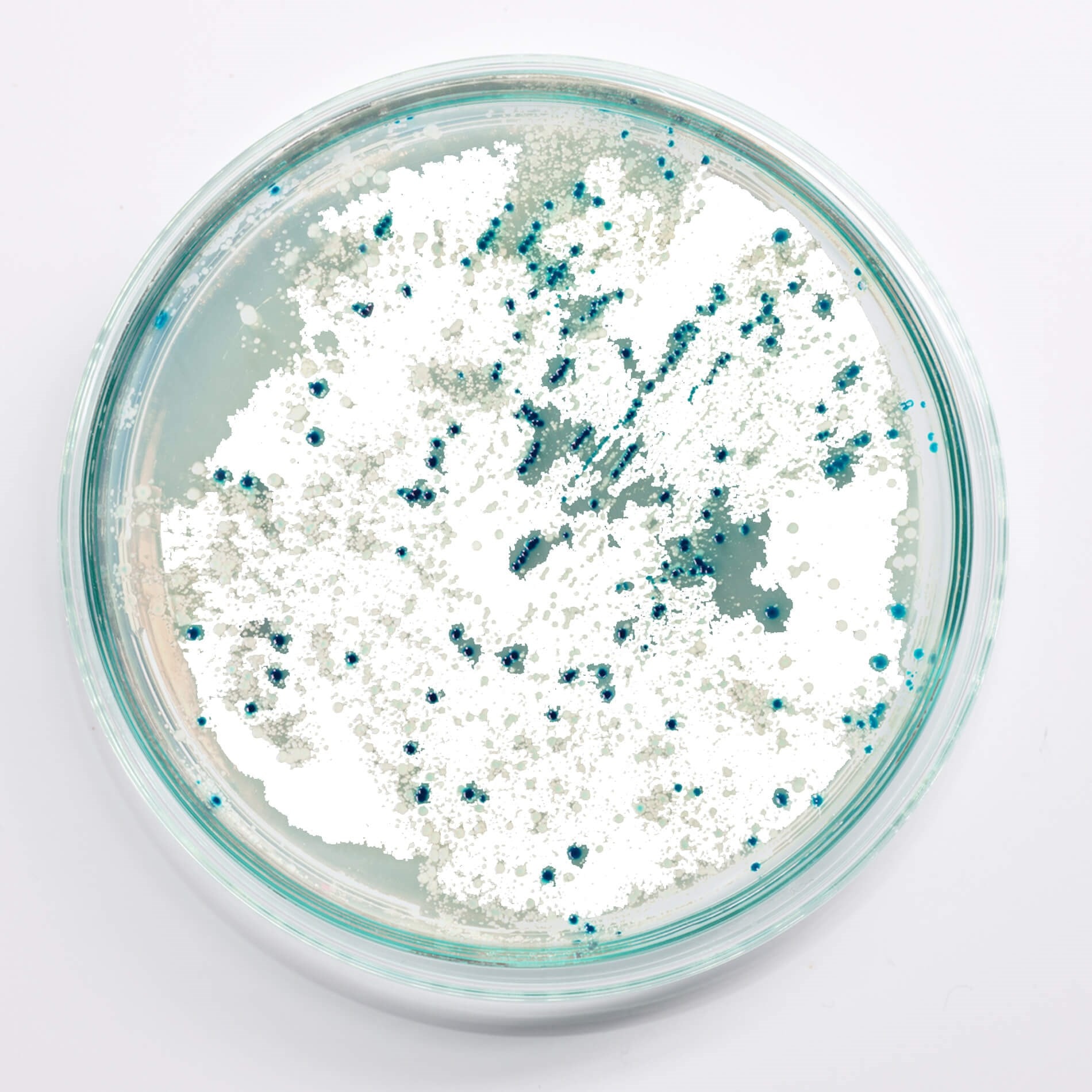Baby and Child Constipation
Having a newborn baby is incredibly exciting and filled with many precious moments, yet it can also present itself as a daunting time. When your tiny newborn baby is clearly experiencing some digestive discomfort, you may feel so helpless and keen to quickly make them more comfortable. Children’s bowel habits can vary greatly. Passing stools once or more a day, or every couple of days is considered normal, but less than once every few days could signal constipation. Other signs can include loss of appetite, feeling unwell or unhappy, unusually bad smelling wind or abdominal pain and discomfort.
- Is my newborn baby constipated?
- Relieving constipation in babies
- Constipation in children
- Probiotics for baby and child constipation

Is my newborn baby constipated?
As a new mother, experiencing motherhood for the first time, it can be tricky to tell the difference between what is normal, and what is not. If however your baby is clearly uncomfortable or distressed, may be straining excessively or producing very hard pellet-type stools, or have not passed a stool for three days or more, they may be suffering from constipation.
It is worth noting that breastfed babies will often pass fewer stools than formula fed babies1, and it can be common for them to go much longer without passing a stool. This is because breast milk has been extremely well-designed by mother nature, and as it is such an easily absorbed food, very little is passed out of the body as waste. Breastfed babies are also more likely to pass paler and softer stools.
Formula milk may be more difficult for some babies to digest, and could lead to constipation, particularly if they are experiencing the transition from breast milk to formula.
Another sign of constipation can be if your baby refuses to feed, or if they pass a lot of wind. If your baby has a lack of appetite and is listless or restless, then constipation could be the cause. Although it sounds odd, constipation can sometimes look like diarrhoea in older babies. This is because the looser stools are squeezing past the compacted harder stools.
Relieving constipation in babies
There are a number of things you can try to ease the discomfort of constipation for your baby. A warm bath often helps to encourage bowel movement, and gently massaging your baby’s stomach around the navel with a little baby oil can also help. Whether you are bottle feeding or breastfeeding, try some cooled boiled water between feeds. Weaned babies can also have fruit juices such as prune, apple and pear which have a laxative effect. Your baby’s stools can change in colour, consistency and smell from day-to-day, but if you are concerned about anything you should talk to your practice nurse, doctor or a qualified nutritionist.
Constipation in newborns may be triggered by an imbalance in their natural levels of gut bacteria2,3. Probiotics can be a helpful tool to bring the levels of beneficial gut bacteria back into balance. A natural birth helps to ensure that a newborn baby's gut is colonised by their mother's bacteria when they travel through the birth canal. If a birth by C-section is your choice, or perhaps medically unavoidable, it may be helpful to supplement with a probiotic. Look for one specifically formulated for newborn babies and infants to help support their natural gut flora while their digestive systems are developing.
Constipation in children
- Diet or medication - Your children may not be getting enough fibre in their daily meals. Good sources of fibre include bran cereals and porridge, fruit (including the skin), beans and peas, leafy green vegetables, dried fruit, and brown rice. Knowing how fussy children can be about their food, you may have to be a bit creative about how to increase their fibre intake, like adding oats to their yoghurt.
- Insufficient fluid intake - Fluid is an essential part of a healthy digestive system and can help prevent constipation as well as a number of other conditions. Water is best, however you could also encourage pure fruit juices over fizzy drinks. Some juices can have a laxative effect, and they also contain fibre, which helps to keep things moving. Keep an eye on the sugar content though, as even too much fruit sugar can be bad. If in doubt, always try to stick to water!
- Illness - Colds and flu as well as other illnesses can easily upset the regularity of your child's digestion. They might have a loss of appetite, and might refuse to eat altogether. Drinking water is particularly important during periods of illness, because a lack of fluids causes dehydration which then leads to constipation. Make sure that your child continues to drink water and ideally eat plenty of fibre whilst they're feeling unwell.
- Being less active or not exercising - Everybody knows that exercise is important for general health and well-being, because it’s good for the heart, the muscles and for burning calories. But it’s also good for avoiding constipation, as it stimulates the whole digestive system and encourages movement of the bowel. Encourage regular walks with the whole family, as this is a great way of getting some fresh air and exercise, and simultaneously benefitting from quality time all together!
- An imbalance of good and bad bacteria - The large intestine is host to a whole range of bacteria, some of which are essential to healthy digestion. The good bacteria (probiotics) help to break down food and extract important vitamins and nutrients from the food we eat. The gut is also host to bad (or pathogenic bacteria), which can trigger digestive conditions like diarrhoea and constipation if they have the opportunity to overgrow.
- Emotional well-being - Constipation in children can be caused by emotional factors. If there were any problems during toilet training, then your child may still have memories and negative associations with going to the loo. They might be feeling anxious or nervous, and the stress of knowing that they 'have' to go only makes it worse. The main thing is not to rush, stay relaxed and wherever possible try not to fuss!
Probiotics for baby and child constipation
If you’re breastfeeding, you could consider taking a prebiotic supplement yourself, which can be passed onto your baby through breast milk. Taking a probiotic supplement with prebiotics is advisable, because although the probiotic strains of bacteria may not be passed onto your baby in the same way, they can improve the quality of your breast milk. However, there are also probiotic supplements available that are suitable from birth and specifically formulated to aid babies and infants developing digestive systems, and help to alleviate or prevent any digestive issues.
Bifidobacterium lactis BB-12® is a well-established, highly researched strain of probiotic.There have been trials assessing the effect of BB-12® on improving bowel regularity in constipated participants. Findings were that Bifidobacterium lactis BB-12® was found to significantly alleviate constipation4. In other clinical trials, children who took B. lactis BB-12® had significantly more bowel movements per week without causing loose stools5. Another strain of probiotic, Bacillus coagulans Unique-IS2, has also been shown in clinical trails to reduce constipation and straining in children6.
References
- Mao M, Zhang L, Ge J, Yan J, Northington R, Yao M, Nowacki J, Hays NP. Infant Feeding Regimens and Gastrointestinal Tolerance: A Multicenter, Prospective, Observational Cohort Study in China. Glob Pediatr Health. 2018 Jan 9;5:2333794X17750271. doi: 10.1177/2333794X17750271. PMID: 29344559; PMCID: PMC5764142.
- Chassard C, Dapoigny M, Scott KP, et al. Functional dysbiosis within the gut microbiota of patients with constipated-irritable bowel syndrome. Aliment Pharmacol Ther. 2012;35(7):828-838. doi:10.1111/j.1365-2036.2012.05007.x
- Kim S-E, Choi SC, Park KS, et al. Change of Fecal Flora and Effectiveness of the Short-term VSL#3 Probiotic Treatment in Patients With Functional Constipation. J Neurogastroenterol Motil. 2015;21(1):111-120. doi:10.5056/jnm14048
- Eskesen, D. et al. (2015), ‘Effect of the probiotic strain Bifidobacterium animalis subsp. lactis BB-12® on defecation frequency in healthy subjects with low defecation frequency and abnormal discomfort: a randomised, double-blind, placebo-controlled, parallel-group trial’, British Journal of Nutrition, Nov 28: 114(10) :1638–1646.
- Nishida S et al., "Effect of Yoghurt Containing Bifidobacterium lactis BB-12® on Improvement of Defecation and Fecal Microflora of Healthy Female Adults," Milk Science , vol. 53, no. 2, pp. 71-80, 2004.
- Sudha, et al. ‘’ Efficacy of Bacillus coagulans Unique IS2 in treatment of irritable bowel syndrome in children: a double blind, randomised placebo controlled study’’. Benef Microbes. 15;9(4):563-572. doi: 10.3920/BM2017.0129. 2018. Epub 2018 Apr 26.
Popular Article
View all Digestive Health articles-
Digestive Health04 Sep 2023


